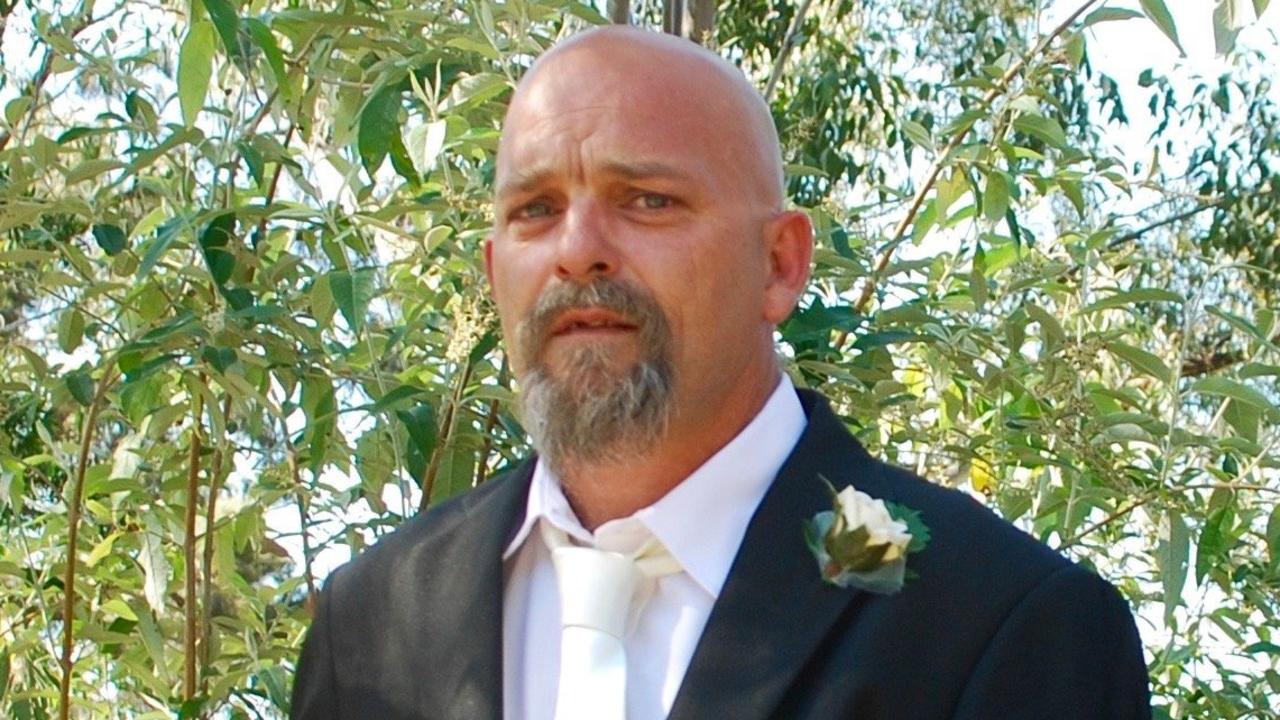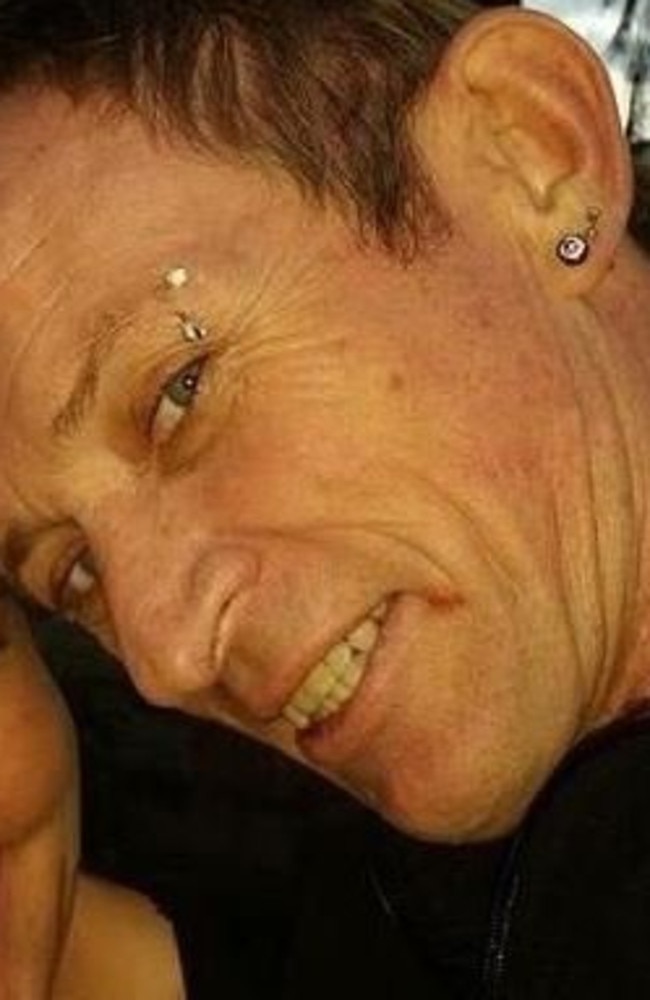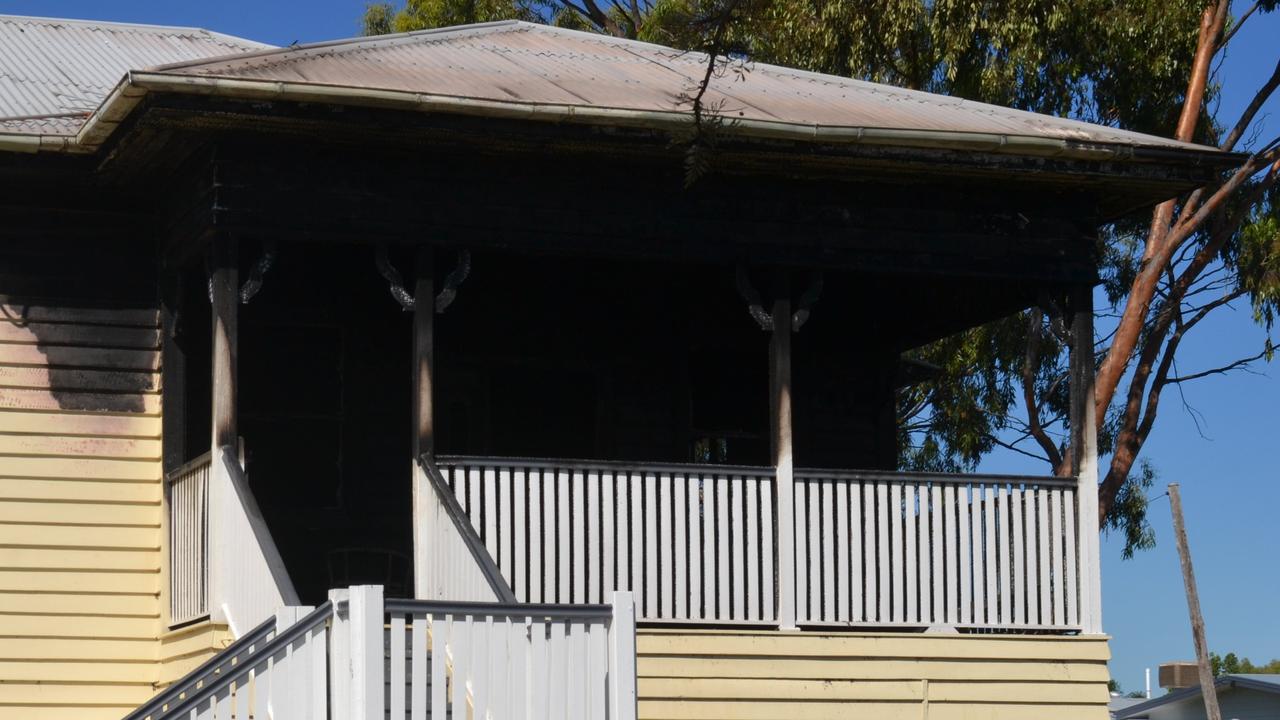Killer claims he bludgeoned partner’s ex with hammer in ‘self defence’
A convicted murderer has claimed on appeal that he struck his partner’s ex with a hammer in “self defence” – despite originally claiming to have enlisted an unknown man to carry out the deed.

Police & Courts
Don't miss out on the headlines from Police & Courts. Followed categories will be added to My News.
A convicted murderer has claimed on appeal that he struck his partner’s ex four times with a hammer in “self defence” – despite originally claiming to have enlisted an unknown man to carry out the deed due to his partner’s “pestering”.
Jason William Binney was sentenced to life imprisonment at Toowoomba Supreme Court in 2018 after he pleaded guilty to the murder of Dalby father-of-three Mark Wilkes.
Mr Wilkes was still asleep on January 20, 2016 when he was repeatedly struck in the head with a hammer, and his Dalby home was set ablaze, the court was told at the time.
Binney pleaded guilty on the basis that he had enlisted another unknown male to carry out the deed, but he has since claimed on appeal that he himself landed the fatal blow in “self defence”.
Justice Peter Flanagan outlined in appeal documents published on Friday how Mr Wilkes had been the ex-partner of Binney’s partner, and there had been tensions over a parenting dispute at the time.
Just months prior to the murder, Binney had been overheard during a fight with his partner saying “I’ll take the kids off you and get rid of (Mr Wilkes) if that’s what you want,” court documents reveal.
Justice Flanagan said Binney had also told another person that he wanted someone to give Mr Wilkes a “tickle up”.

The appeal documents note Binney had originally made attempts to “deflect attention” after the murder – including claiming he had found a note saying “you’re next” under the windshield wiper of his car.
Binney later attended Dalby Hospital and claimed he had been attacked by an intruder with a steel bar and knife – but a medical expert suggested the injuries were self-inflicted.
Binney later admitted to a police agent at the Dalby Watchhouse that he had asked an unnamed Vietnam veteran to kill Mr Wilkes, the appeal documents reveal.
When speaking to police, Binney said he had only asked the veteran to assault Mr Wilkes – claiming his partner had “pestered” him to get rid of him.
His partner was not charged over the incident.
Justice Flanagan said Binney had initially told police that he had entered Mr Wilkes’s house on the night of the murder and had seen the killer still swinging the hammer – which Binney had provided to him – as Mr Wilkes lay on the couch with “blood everywhere”.
He said Binney had claimed the killer then used fuel, stored in a baby’s bottle, to set the home ablaze.
Justice Flanagan said Binney refused to name the killer, but had told police the man had served in the war with his father and was terminally ill with cancer – with only about eight weeks left to live.
Over four years after his sentence, Binney appealed to the court for his conviction to be overturned – saying his original version of events was “untrue”.

Justice Flanagan said Binney wrote to the sentencing judge in early 2022 with what he claimed was the “true version of events”.
In the new version, Binney claimed he had gone to Mr Wilkes’s house the night of the murder with a fuel bottle and gloves after his partner had asked him whether Mr Wilkes had been “dealt with”.
Justice Flanagan said Binney claimed that he told Mr Wilkes he was only there to talk, but then retaliated after Mr Wilkes punched him.
Binney further claimed that he hit Mr Wilkes four times with a hammer in “self-defence” during the scuffle.
He said he then “panicked” and set the home on fire himself – before giving the “untrue” version of events to police as he was under “severe duress” and off his medication.
Binney had claimed in the appeal filed in late 2022 that he “did not have enough faith in [his] legal representatives to talk about the truth” and accepted their advice to “get it over and done with”.
Justice Flanagan said even if Binney’s “true version of events” was accepted, there would be “obvious difficulties” with Binney attempting to pursue a self-defence case when, on his own account, he took fuel and gloves to the house intentionally and then struck Mr Wilkes four times with a hammer.
He said Binney had still been aware of his right to a trial and there was no assertion he was not of sound mind when he entered the plea.
“As well as there being no adequate explanation for the extensive delay in filing a notice of appeal, the applicant has not established any proper basis for setting aside his plea of guilty,” Justice Flanagan said.
“His other reasons for pleading guilty, namely that he ‘could not fight two battles at once’ and that he ‘felt bad for what happened to [the deceased]’ do not constitute cogent reasons sufficient to set aside his plea of guilty.”
Binney’s application for an extension of time to appeal was refused, and his conviction still stands.
Originally published as Killer claims he bludgeoned partner’s ex with hammer in ‘self defence’





